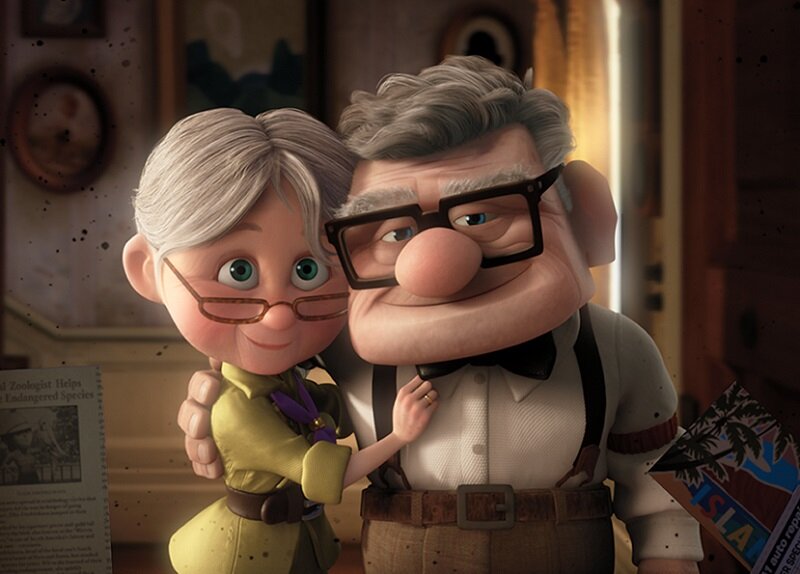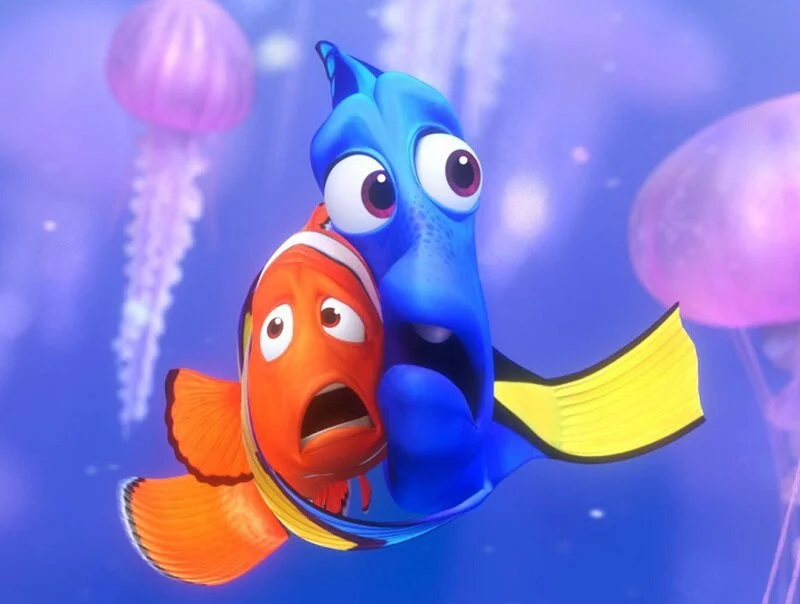Was Up The End of Pixar's Golden Age?
Up. Image courtesy of Pixar.
Let’s get one thing straight right off the bat: the opening montage sequence of Up is absolutely perfect. It is a beautifully crafted example of pure visual cinema deployed to maximum emotional effect and somehow manages to basically capture the entire thrust of life, the beauty and the sadness and the complexity of the whole thing, in just a few short, beautifully animated and poignant minutes. I think it’s just a masterpiece of subtle, economical and moving filmmaking.
However, and I realize I am probably in the minority here, I have never really cared for the rest of the film. Up was another major financial success for Pixar, booking over $700 million at the box office, and critics loved it - it has a 98% rating on Rotten Tomatoes. In fact, it was so good it netted Pixar their first nomination for Best Picture, the Academy finally throwing in the towel and deciding they couldn’t treat Pixar’s films differently anymore simply because they were animated.
But I could just never get onboard with it. I understand why people like it. The tale of a grumpy old man having one last adventure and learning to embrace the imperfect beauty of life again in the wake of devastating sadness thanks to an annoying boy scout, a flying house powered by balloons, talking dogs and a giant bird is inventive and emotionally complex. Like the best Pixar films, it takes us to an imaginative alternate reality only possible though animation where it explores deeply human themes of loss and life and the bonds that tie it all together.
But I could never really get behind it. In some ways, it’s a little too weird. I realize that’s an odd thing to say considering that I love Ratatouille, a film about an idiot being controlled by a genius rat chef who sits on his head, but as they say there really is no accounting for taste. Up was the brainchild of Pixar veteran Pete Docter, who has helmed some of their absolute greatest hits, like Monsters Inc, so you would expect another sterling product. Yet for me, the story just falls flat. I’ve always really hated the talking dogs and I don’t really like the characters, or the setting. I realize it’s a gorgeously animated complex story, and it hits all the right notes. But I’ve never held it in the same esteem as the other classics of Pixar’s Golden Age like Toy Story, The Incredibles or WALL-E.
It also arguably represents the end of Pixar’s Golden Age. After Up, Pixar began recycling a lot more of its IP. More sequels, more franchises. It came out with some of its first outright bombs. Pixar’s output since 2009’s Up has never matched the inventiveness, the sheer clarity and scope of creative vision that drove it to such monumental, industry-defining heights in the early years. You know, maybe this is a function of its corporate identity as a subsidiary of Disney. Maybe it’s just that no studio can make non-stop perfect hits forever, and the entropic forces of time will always wear us down in the long-run.
I don’t know. I do know that after Up, the unbroken chain of instant classics that had defined Pixar’s Golden Age during the 2000s became less reliable. We started getting more competent but not transcedent films, fun family fare that was well executed but didn’t aspire to be anything more (such as the recently released Luca). So maybe it’s fitting that Up, with its deep meditation on loss and grief coated in a mildly ridiculous veneer of talking dogs and balloon-propulsion, bookended the period of Pixar’s output that we can definitively say was its Golden Age and heralded the coming of a new era, one that is still reliably good and entertaining but only rarely elevates itself to the same kind of sublime experience that Golden Age Pixar delivered with every film it made.






